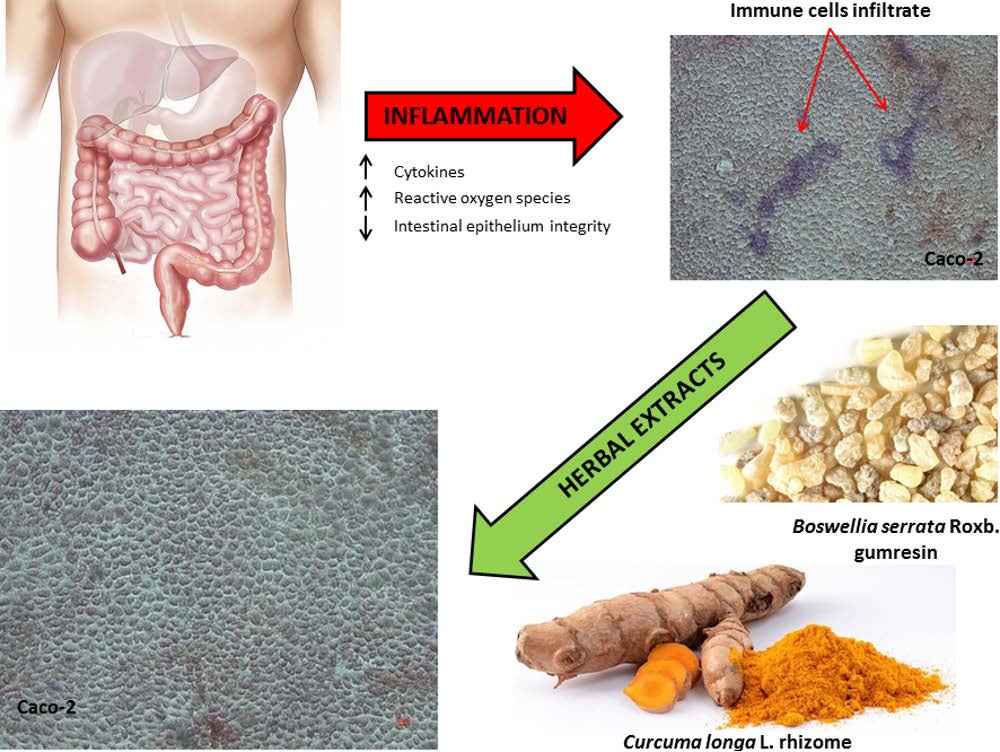Inflammatory bowel diseases, which consist of chronic inflammatory conditions of the colon and the small intestine, are considered a global disease of our modern society. Recently, the interest toward the use of herbal therapies for the management of inflammatory bowel diseases has increased because of their effectiveness and favorable safety profile, compared to conventional drugs. Boswellia serrata Roxb. and Curcuma longa L. are amongst the most promising herbal drugs, however, their clinical use in inflammatory bowel diseases is limited and little is known on their mechanism of action. The aim of this work was to investigate the effects of two phytochemically characterized extracts of B. serrata and C. longa in an in vitro model of intestinal inflammation. Their impact on cytokine release and reactive oxygen species production, as well as the maintenance of the intestinal barrier function and on intestinal mucosa immune cells infiltration, has been evaluated. The extracts showed a good protective effect on the intestinal epithelium at 1 µg/ml, with TEER values increasing by approximately 1.5 fold, compared to LPS-stimulated cells. C. longa showed an anti-inflammatory mechanism of action, reducing IL-8, TNF-α and IL-6 production by approximately 30%, 25% and 40%, respectively, compared to the inflammatory stimuli. B. serrata action was linked to its antioxidant effect, with ROS production being reduced by 25%, compared to H2O2-stimulated Caco-2 cells. C. longa and B. serrata resulted to be promising agents for the management of inflammatory bowel diseases by modulating in vitro parameters which have been identified in the clinical conditions.

